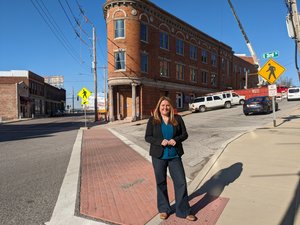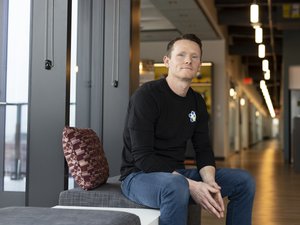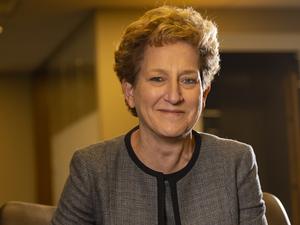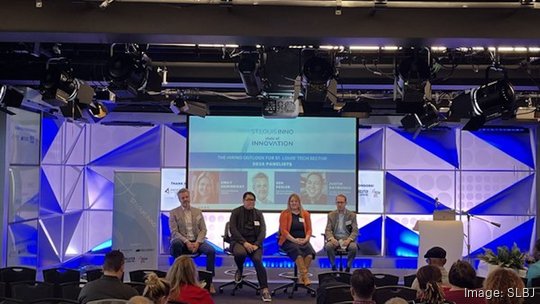
The employment landscape for technology careers has changed.
After years of growth, hiring by technology firms has slowed locally and nationally. But it’s a “dip” that isn’t expected to cloud the longer term job outlook for the region as fields like artificial intelligence and cybersecurity garner more prominence in business operations, local technology and workforce officials said Tuesday at St. Louis Inno’s State of Innovation event.
“Longterm, over the next five to 10 years, we see significant growth within those tech jobs,” said Emily Hemingway, executive director of technology industry group TechSTL.
Tuesday’s State of Innovation event included a panel discussion examining the hiring outlook for the local technology sector. In addition to Hemingway, panelists included NPower Missouri Executive Director Ben Kesler and Justin Raymundo, director of regional workforce strategy at innovation hub BioSTL.
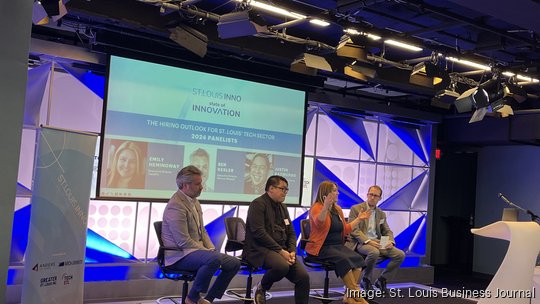
While the panelists said future growth is expected for the technology workforce, the near-term outlook differs. Hemingway shared details from a report published in March by TechSTL that found job postings for technology roles in the St. Louis metro in 2023 fell 45% compared with the prior year. Employers in the St. Louis region had 39,020 job postings across 55 different technology occupations in 2023. Job postings were down from 70,456 in 2022.
Technology employment inched higher in 2023, despite the steep drop in job postings. Technology employment across the 55 occupations examined in TechSTL’s report was up 2% at the end of the third quarter of 2023. But the total number of jobs could decrease in the future because of the significant decline in new job postings, Hemingway said Tuesday.
“The pipeline data is a predictor of what’s coming,” she said. “While we didn’t lose a lot of jobs in the labor market last year, we will likely see that loss this year.”
The trend isn't specific to St. Louis. Across the U.S., job postings for technology roles were down 35% in 2023, according to TechSTL’s report. Several high-profile technology firms, including Block, Microsoft and Meta, conducted layoffs in 2023. Meanwhile, startup companies pulled back on hiring in 2023, with data from Carta finding startups made 267,818 new hires in 2023, down 523,487 hires in 2022.
“It is an employer’s market versus a job seeker’s market,” said Kesler.
At NPower Missouri, which provides training to launch technology careers, graduates are still having success landing entry-level roles, despite a reduction in open jobs, Kesler said. Program graduates who are mid-career have been most impacted by cutbacks, with some being laid off and then facing stiffer competition for new roles due to the slowdown in hiring, he said.
How St. Louis can stand out
St. Louis has grappled with industry slowdowns before, even developing strengths from them, said Raymundo. St. Louis’ focus on bioscience innovation and entrepreneurship developed decades ago out of the region’s response to corporations that had departed the region or lessened their footprints here, he said. That led the region to pursue physical sites to drive innovation, including the Cortex innovation district in the Central West End, and the 39 North agriculture innovation district in Creve Coeur, Raymundo said.
That type of infrastructure provides an anchor for tech jobs in St. Louis, helping it withstand some of the economic ebbs and flows of industry, Raymundo said. But unlike jobs tied to labs or in manufacturing facilities, tech jobs aren't "as heavy on physical infrastructure," Hemingway said. The work can be done from anywhere, which might benefit a company based in St. Louis but doesn't help to drive local employment.
One way to help with that, Raymundo suggested, is to find a way for the region to invest in more computing power that would be accessible to entrepreneurs and small businesses.
As future growth is expected in the technology sector, St. Louis faces competition in attracting and retaining talent. That makes it important to highlight investments, such as the planned $55 million advanced manufacturing center and the National Geospatial-Intelligence Agency’s new $1.7 billion western headquarters.
“There is a story to be told,” Raymundo said.
The region must also continue efforts to build a diverse technology workforce, all three panelists said. That includes racial and gender diversity, while also providing career pathways for those with non-traditional education backgrounds, they said. Kesler said one advantage in St. Louis is the role that higher education has played in partnering with groups like his to help train workers. NPower Missouri has its headquarters at St. Louis Community College’s William J. Harrison Center in north St. Louis.
“When I talk to my colleagues in other markets, they just don’t have that,” he said.
If St. Louis wants a diverse technology workforce, employers must continue to advance diversity, equity and inclusion initiatives, said Hemingway, citing that many employers are pulling back from those efforts.
“As a region, we have to make this a priority again. We’re not going to keep diversifying our workplaces if we don’t set that intention,” she said.

